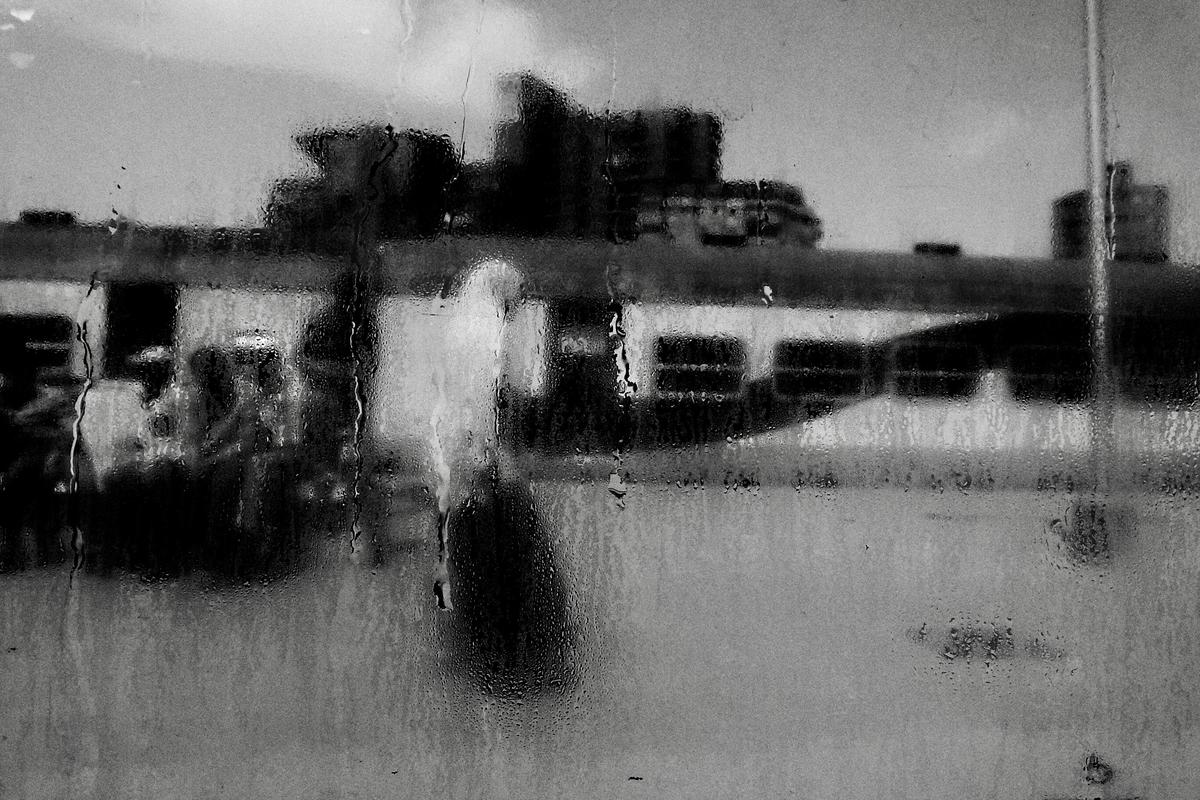
The writer Youssef Rakha is the only child of a former Marxist lawyer and a translator. Depending on the circle in which you ask about him, he is referred to as a novelist, poet, journalist, literary critic, photographer, husband, or father of three. You might even hear him mentioned in the same sentence as Roberto Bolaño. Rakha’s novels—three so far—are intricate and ambitious, often pushing the boundaries of language and form, and have been nominated for numerous awards, including the International Prize for Arabic Fiction. He is also the author of six other books, including a collection of short stories, a volume of poems, and two travelogues. The focus of Rakha’s life and work is his city, Cairo.
That city is also the core concern of May al-Ibrashy, a historian-conservator-professor and the director of Megawra, a nonprofit organization concerned with cultural heritage and the urban environment. Al-Ibrashy, whose organization is headquartered in the historic district of Al-Khalifa, in an unfinished mosque built in the 1920s, has worked on the restoration of some of the city’s most significant monuments. Among much else that she does, she runs a school for children of the neighborhood, and works with refugees.
As practitioners in and of the city, al-Ibrashy and Rakha have known each other for years. They had this conversation over several afternoons at Megawra, on a wooden bench down an alley.
— Yasmine El Rashidi
Youssef Rakha: The question I was thinking of, what I wanted to start with, is how do you feel, or perceive, being in Cairo, as opposed to other possible urban environments, and especially at this moment in time — historically, with all we’ve been through.
May al-Ibrashy: [Laughs] You know, I used to have a very ready answer to that question, until it became — and I mean the whole existence in Egypt in general — overwhelmed by the political. I used to have clear answers about the difficulty of being in Cairo and what is fun about it and how it’s tiring, how it’s invigorating; and then just the potential of being in a city like Cairo, or being a person like me in the city of Cairo, which I think is huge; and most importantly the connection with the historic city, which is what I work in and on and what is of interest to me, and how I can’t imagine myself being in another context professionally. But the issue now for me with this city, with being here, is that politically, socially, economically, even, there is this overwhelming feeling of… a heaviness… a heaviness that is pervasive, which makes you sort of not see the other things.
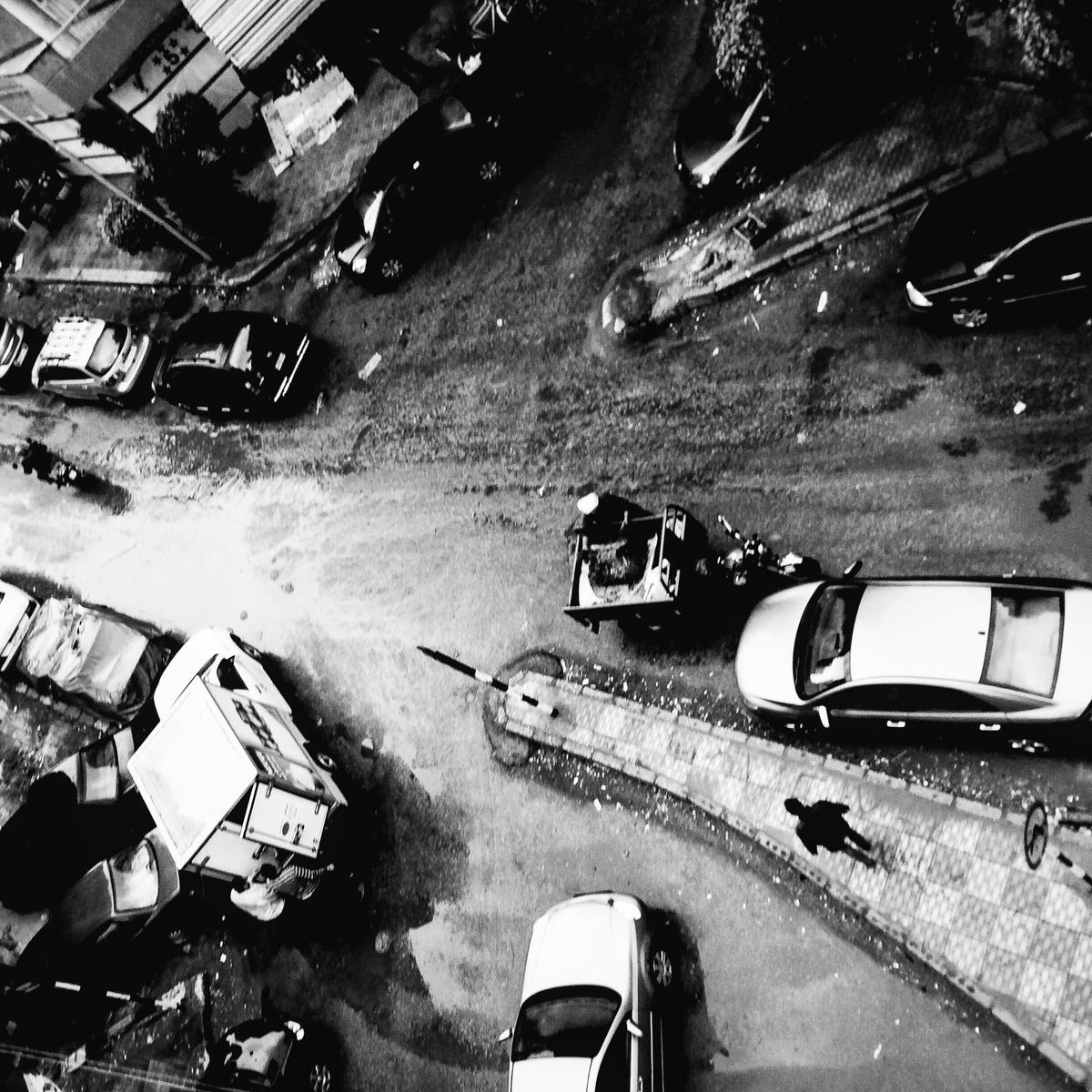
YR: You are saying this started in 2011?
MI: No, not in 2011, in 2013 I would say. [Laughs]
YR: But I mean post event.
MI: Yes, I remember in December 2010 — there is this Lebanese anthropologist who lives in Australia, and he talked about how the Middle East in general is in a state of stuckness and how he could not imagine a way of getting out of that state of being stuck, and I remember all through 2011 remembering this guy and thinking, You were wrong! You were so wrong! And now I keep remembering him again and thinking, You were so right! [Lights a cigarette] And I think the issue with Cairo right now… does this bother you? [Gestures to the smoke]
YR: No, no.
MI: The issue is that there is a state of disconnect, in that you get on with everything that you are supposed to get on with, but with a clear understanding that this is all ephemeral.
YR: Ephemeral?
MI: Yes, I mean, the sense that it might stop at any moment, as it did, and that, in the end, it doesn’t really matter if you look at the bigger picture, which is not Egypt… What has happened now to me, after 2011, is that I cannot see Cairo out of the context of Egypt, and now I can’t see what is happening in Egypt out of context of the globe — which is the fall of capitalism in the near future [laughs], and the decline and fall of the Roman Empire, of the whole capitalist system.
YR: I think what is falling is liberalism, which will take capitalism with it.
MI: But actually I think it’s capitalism. [Laughs]
YR: But there is a difference?
MI: I understand the difference, and I think it’s capitalism.
YR: Okay.
MI: I was in India recently, and Indian cities are extremely difficult, more difficult than Egyptian cities, I think, but the difference — and maybe it’s because I’m an outsider, or because I talk to people, but I felt that this is how they see the country — is that the country is moving. They might disagree with it, but it’s moving.
YR: You don’t feel like we’re moving here?
MI: No, there is no momentum taking things in a certain focused direction, unless it’s the global direction, which you can’t really control. So, for me, I find myself wondering, what is it that I’m doing in the city, when nothing is really in your control? [Long pause] I should say, though, that I never had any pretense of controlling or leading what was happening. Or only very short-lived experiences of that.
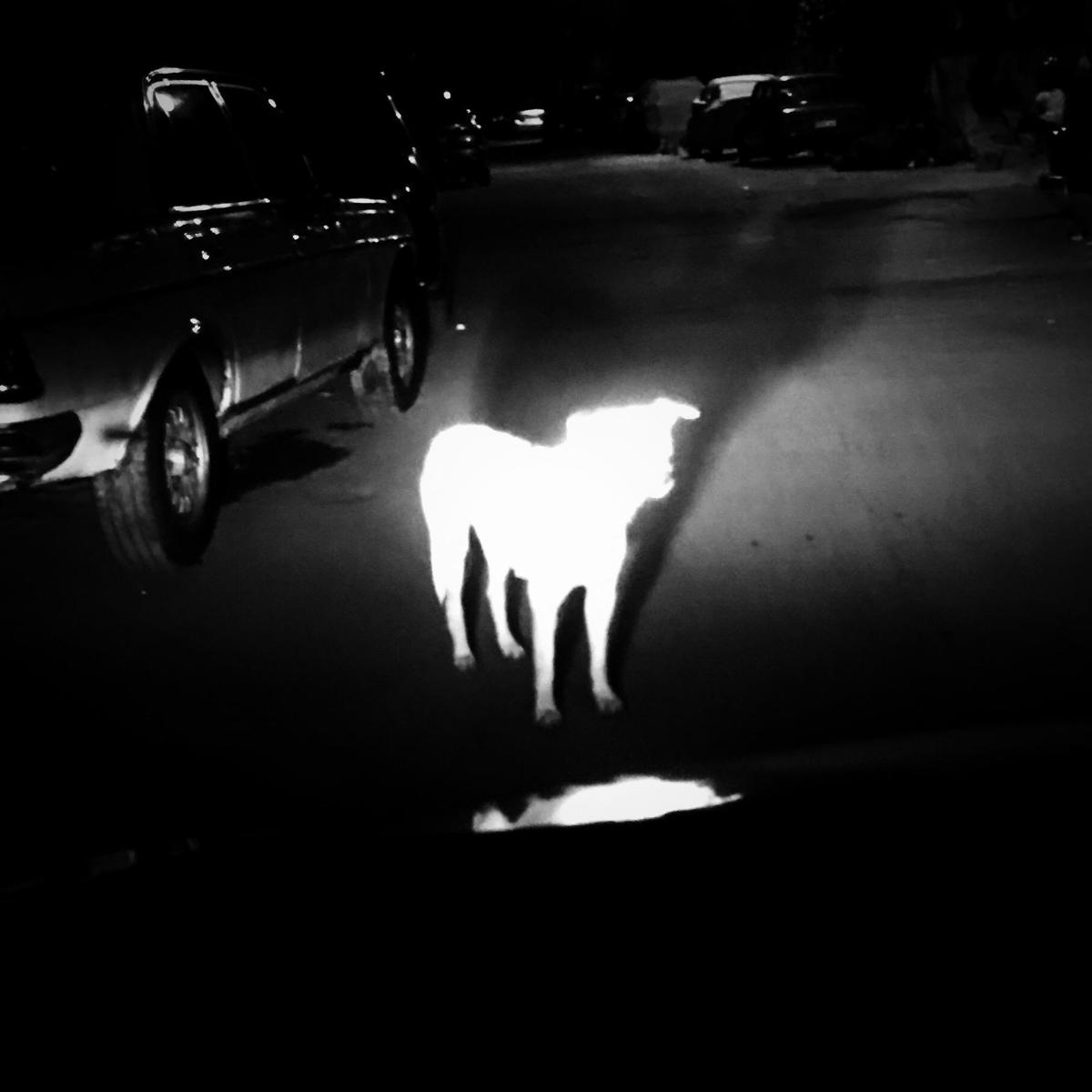
YR: We’re talking 2011 here?
MI: Yes.
YR: Were you “involved” from the beginning?
MI: Not from the beginning, no. I remember the day when planes flew by. I think it was that first Saturday, the twenty-ninth? I had been working in the cemetery those first few days — we were working on a conservation project — and that day, the twenty-ninth, I was driving home and those F-16s flew by, and I remember thinking, What is happening? After that I went to the square.
YR: Do you remember that time, or even specific feelings or moments from that time?
MI: There are moments that are very clear in my mind, especially during the early days. But almost all of them are ontological — I mean, they are more about who I am as a human being than anything else, or things I was thinking about. A lot of them relate to my understanding of time. I was still working in conservation then, which obviously requires you to deal a lot with history. What’s interesting to me now, thinking back, is that during those days it felt like we were living through a historic moment. There were a lot of references to the past and to the future — what we were going to do, how we were going to be. Those moments were very vivid, and they color how I see myself and my profession to this day.
YR: Can you describe one of them?
MI: Well, there were times when I felt very vividly a sense of right now physically being in this place, and this place being something totally different from what it had always been before. I remember that there was no pollution in the square. There were no cars! But it didn’t just feel different on the ground — it was the air that you breathe, the sun that you see. It was a clear moment of now. And then almost the opposite feeling the first time I experienced tear gas: So this is what it feels not to be able to breathe. Is this what death feels like? I mean, it wasn’t real death, but, you know…
YR: Of course. It’s a form of torture.
MI: I was very naive and stupid and very slow to get all the other things that were going on. Most of the time I was like, what the fuck? But there was always a sense of responsibility. I was aware that my body is of a certain volume, which could fill a space. So if you need a certain number of those volumes to fill a square… mine was one of the volumes that could be used. So that’s what I did. I rarely talked to people. I just sat there. I drew a lot.
YR: You drew?
MI: Yeah. I just sat in the square and drew whatever was happening around me.
YR: It’s interesting that for me, as a writer, an observer, a journalist, it’s maybe the opposite, how I feel being here right now — in that I feel like I have a tremendous privilege in Cairo now and forget whether things are moving or not. Being here, you can see things through a different prism. You can have a complete critique of liberalism; you can see democracy’s discontent. Whereas if you were in London, there’s no way you could see it.
MI: Why? You don’t think they have that veneer of privilege one finds elsewhere in the western world?
YR: I have a veneer of privilege here, I think. You see the global order breaking down from here. The same issues that you are dealing with in London — positions you would defend in London in terms of freedom or justice or cultural diversity — in regard to Islam, say, when these arguments are transplanted here, it’s not the same. And having to see both sides is a tremendous privilege. It allows you to be —
MI: To be independent?
YR: As a writer, the whole point is not to let your writing become propaganda. And by propaganda I don’t just mean obvious propaganda, but for you to genuinely chart your own path and be completely dispassionate.
MI: I agree. Among architects working here, there is a general frustration with the way we are required to deal with global discourse on issues of urbanism or heritage or the politics of whatever. In our discipline there’s a need to engage with both theory and methodology — to translate theory through process, in a way. But — and this is where it becomes tricky — I feel that we are necessarily more creative in developing these methodologies because of the context that we work in.
YR: You have to be.
MI: But this kind of methodological work is extremely time-consuming, and draining, when you’re dealing with a place as diversely complicated as Cairo. So you end up in a position where you have what you believe are more interesting, more useful methodologies, which point to the inadequacy of the standard global theories. But as soon as you start talking about that, you are accused of not knowing enough. If their theory isn’t working, it must be that your methodology isn’t right. But as soon as you say, for example, that Cairo poses a problem for the idea of participatory design, which is very big in the field and very problematic, you’re told to go study what happened in the 1990s or the 1970s. The default presumption is that you have nothing to say.
YR: Precisely. I don’t have this problem with my writing — the beauty of literature is that you don’t have to do this [laughs] — but when I try to express similar ideas in a nonfiction context, this is precisely the problem. If you are rethinking democracy then you’re obviously just antidemocratic; it couldn’t be that democracy isn’t working.
MI: What do you know about democracy?
YR: So then did the revolution change your relationship to architecture? Megawra opened later in 2011, correct?
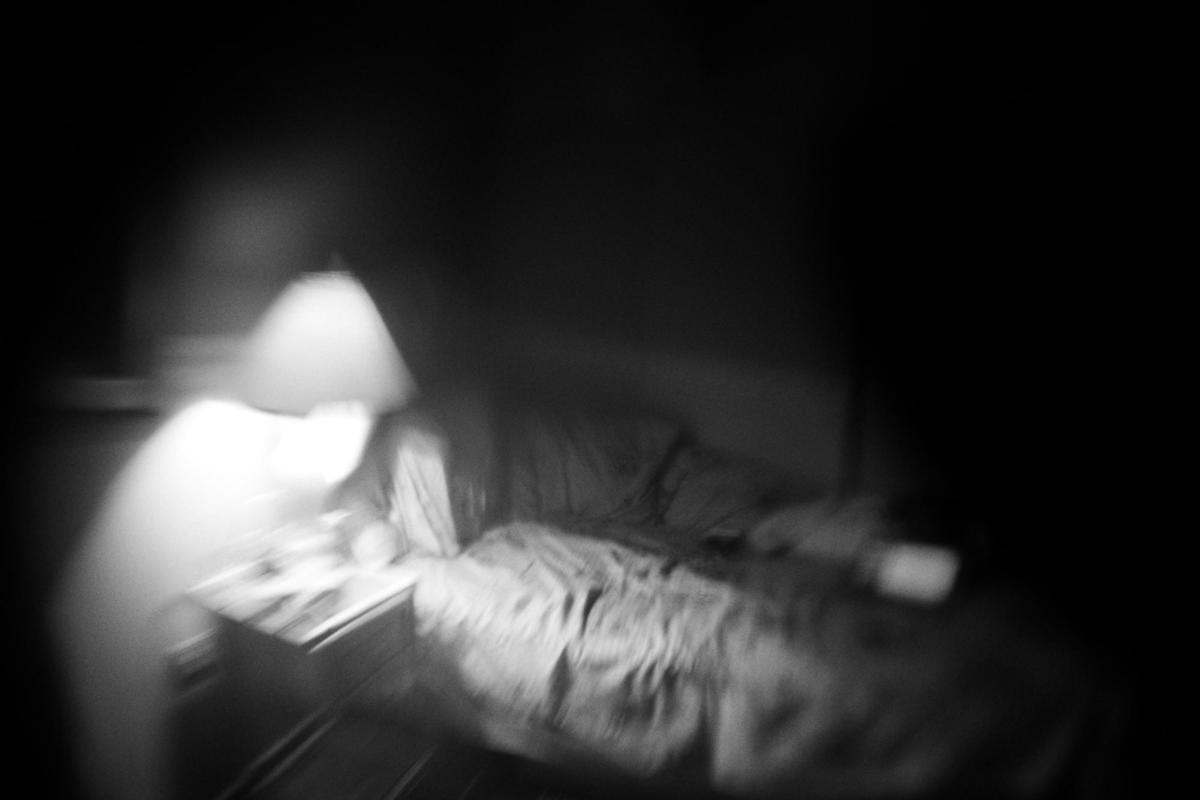
MI: Well, I’d been teaching full-time for some years before then, and by 2010 I was generally unsure about what I was doing in my life. And it occurred to me that I would like to do something to start to address the gaps that I felt existed in architectural education. This was where the idea for Megawra came from, although it wasn’t until the revolution that everything sort of came together suddenly. And through Megawra, I was able to engage with the historic city again, which I hadn’t really been able to do for some years.
YR: Why? What was holding you back?
MI: I think because my engagement had mostly been through conservation, and that approach, of focusing purely on heritage buildings without truly engaging with the city, was not working. It might be gratifying on a personal level but it’s not necessarily useful or impactful in the long run. You conserve a building, it’s fine for five to ten years… then the city takes over again and we’re back to square one. But after the revolution I had a sense that things could move forward in place — that architecture and conservation might be able to makes things better in the moment.
YR: It sounds like more of an existential kind of approach: bettering things without charging your actions with the expectations of the bigger movement.
MI: Do you think they ought to be charged?
YR: No. Professionally? No, I don’t think so. That’s where the savior complex comes in.
MI: Although to get back to this idea of charging… In my opinion — and tell me if you agree — your first novel, The Book of the Sultan’s Seal, is kind of charged. Which comes with baggage…
YR: Yes, I agree, of course. Although you could say that its baggage is that it is charged with hope. It’s definitely more hopeful than my second and third books.
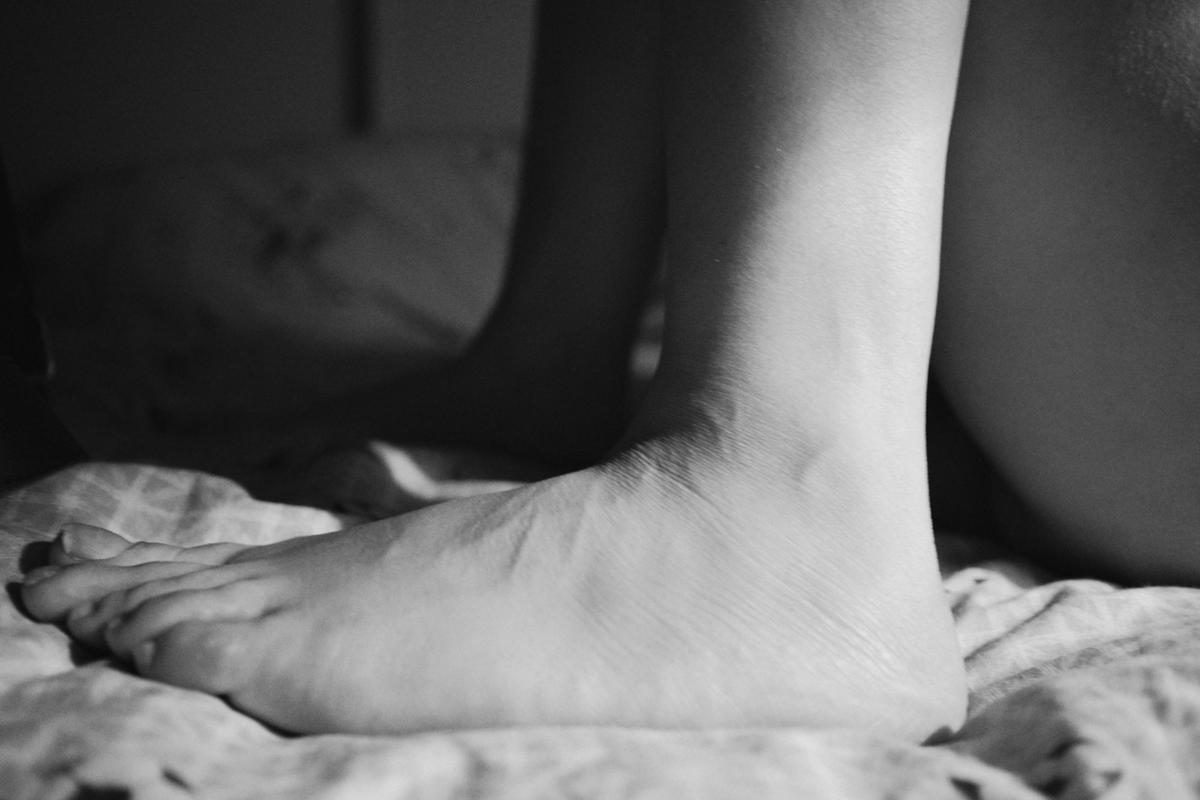
MI: I suppose that any book could be said to be charged; what I mean is a work that is consciously engaged with how we see ourselves as a community.
YR: It’s tricky. It still needs to be filtered through the individual, I think, if you’re to avoid falling into all kinds of discourses that are not independent.
MI: Well, from my perspective as a reader, sometimes a book speaks to you in a voice that is very clearly its own. That’s basically what happened for me with your first novel. And when that happens, it doesn’t really matter what it says, you get a kind of magical experience. I don’t mean that in a romantic way. It’s just that — you know how some people read to know? I don’t. I never read to know. [Laughs]
YR: I wouldn’t have wanted you to.
MI: Have you read this horrible book about Bombay? It’s called Shantaram, and it’s awful, but you can’t stop reading it. It’s about an Australian guy who goes to India and gets immersed in the under-life in Bombay: If it’s Orientalist, racist, fetishistic, et cetera, it is in this book. And yet it’s an amazing read. I had just been in Bombay when I read it, and I cannot stop making that book color the way I think about that city.
YR: But why is that bad? What specifically is wrong with “Orientalizing” and “fetishizing” the city? [Laughs]
MI: It’s flattening!
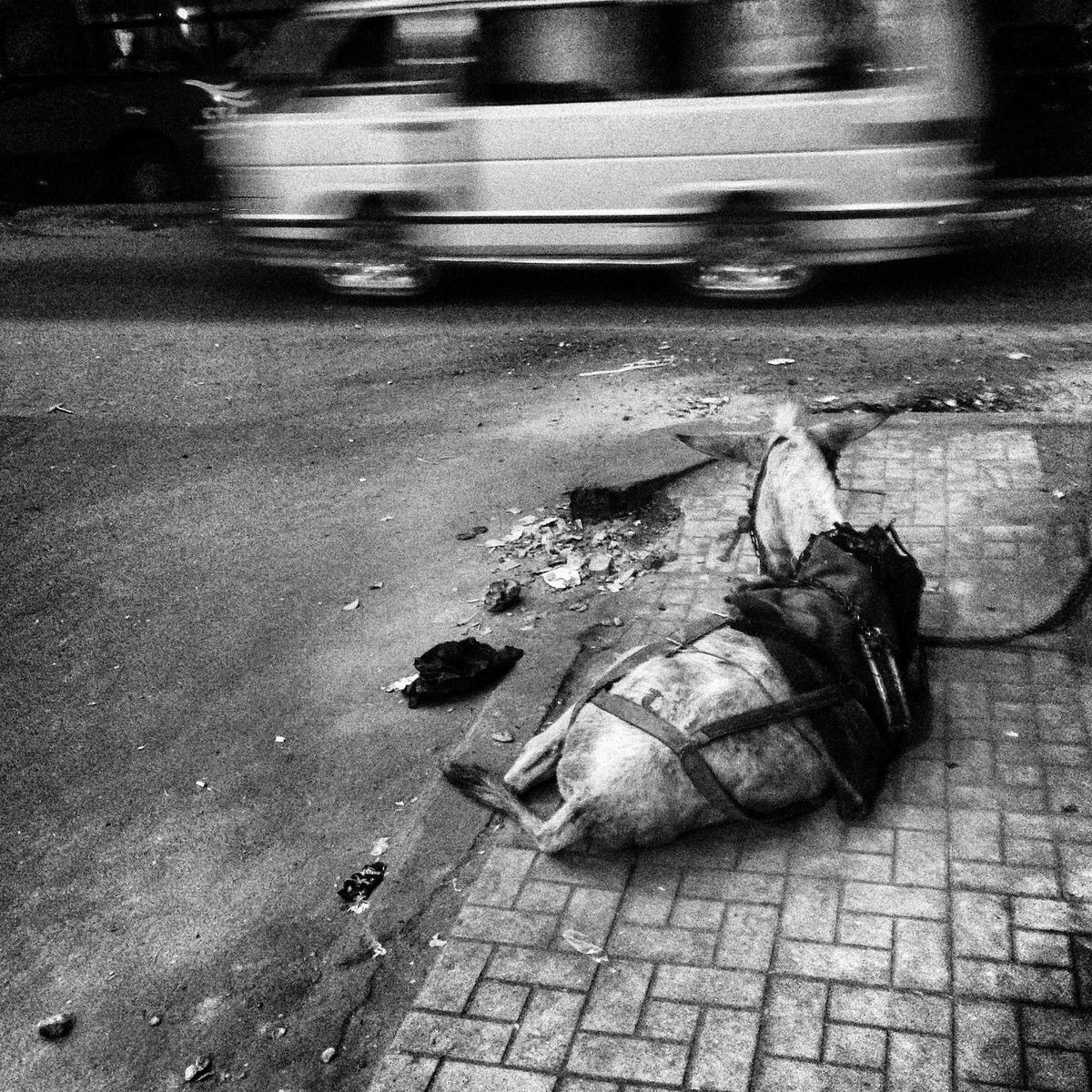
YR: It takes away complexity?
MI: Of course. I mean, you always have to simplify to a degree, right? It’s inevitable, whether it’s a design or a novel.
YR: But why is it problematic for you?
MI: I think it’s about the degree. When I say “flatten,” I mean to such a degree that it loses individual parts that are necessary. It’s an act of your distillation, as opposed to a decision on one narrative.
YR: So then what’s the difference between a judgment and a value judgment?
MI: A judgment would be saying that the book is ridiculous; a value judgment is saying that a book about Bombay written by an Australian Orientalist can only be so good anyway. So a value judgment involves a predetermined idea about something. For example: I have a problem with the hijab, because I have an issue with Islam.
YR: I think that any judgment — even with all the goodwill in the world — even in its fairest, most objective form, still has yourself in it. I keep thinking about the kind of decisions you have to make as a writer — how you engage with history, in choosing what to tell and what not to tell. Those are the biggest challenges I’ve had to face.
MI: The wider issue is simply understanding who I am and acknowledging that you may not want to make value judgments, but there are judgments and value judgments and the devil lies in between. And maybe admitting the sort of frailty in the system is important.
YR: Are you constantly aware of the possibility that you are fetishizing or Orientalizing?
MI: Are you aware the way you want to be aware all the time? I don’t think it’s possible.
YR: I agree. I think some of the activist discourse in the Egyptian revolution was extremely imperialistic in this sense, that it refused to admit any possibility of failure or frailty. It lacked the humility to step back.
MI: I think that was true for some people and not others.
YR: What would you say made the difference? Does it depend on education?
MI: Not education. You can become educated to a point that you have to start unlearning. It’s a cliché, but a little knowledge is much worse than no knowledge at all.
YR: Yes, I believe that a little education could be a problem, although for some people in certain contexts it works. [Laughs] In any case, I remember reading an article about demonstrations that noted that there are always opponents to demonstrations —
MI: Counterdemonstrators?
YR: Yes, but even more, those who stay home. But the journalist and human rights worker who wrote the piece was totally convinced that demonstrations are always right, always the best for people. I don’t really think that there’s such a thing as knowing what is better for other people.
MI: This is why democracy isn’t working — there’s a flaw in logic here.
YR: I think democracy is a different case.
MI: Not really. It’s about the rule of the majority.
YR: In theory, but not in practice, I don’t think, because of the ways that the rule of the majority is constituted in different societies.
MI: Sure. I guess I think the important thing is the planet is collapsing because of us, and we as a human race are fighting over silly things instead of confronting that.
YR: Part of what it means to be a writer or an artist or an architect — somebody who is at least a little outside — is that you have the capacity to get away from the details a little. You can step back and see the panoramic view. One of the things that drove me completely crazy during those years was the amount of time and effort that we spent on insignificant details.
MI: Like what?
YR: Like whether Abdel Moneim Aboul Fotouh was Muslim Brotherhood or not. People would spend days arguing about this. Friendships collapsed over it. Things were very irritating in that sense. I thought it was a bit stupid, to lose the ability to have a conversation because you are too busy changing the world. People behaved as if they were little gods forging reality…
MI: I think what it comes down to, what those years did to us as individuals, is not just about whether the effort was effective. It’s also about what it has done to you as a human being.
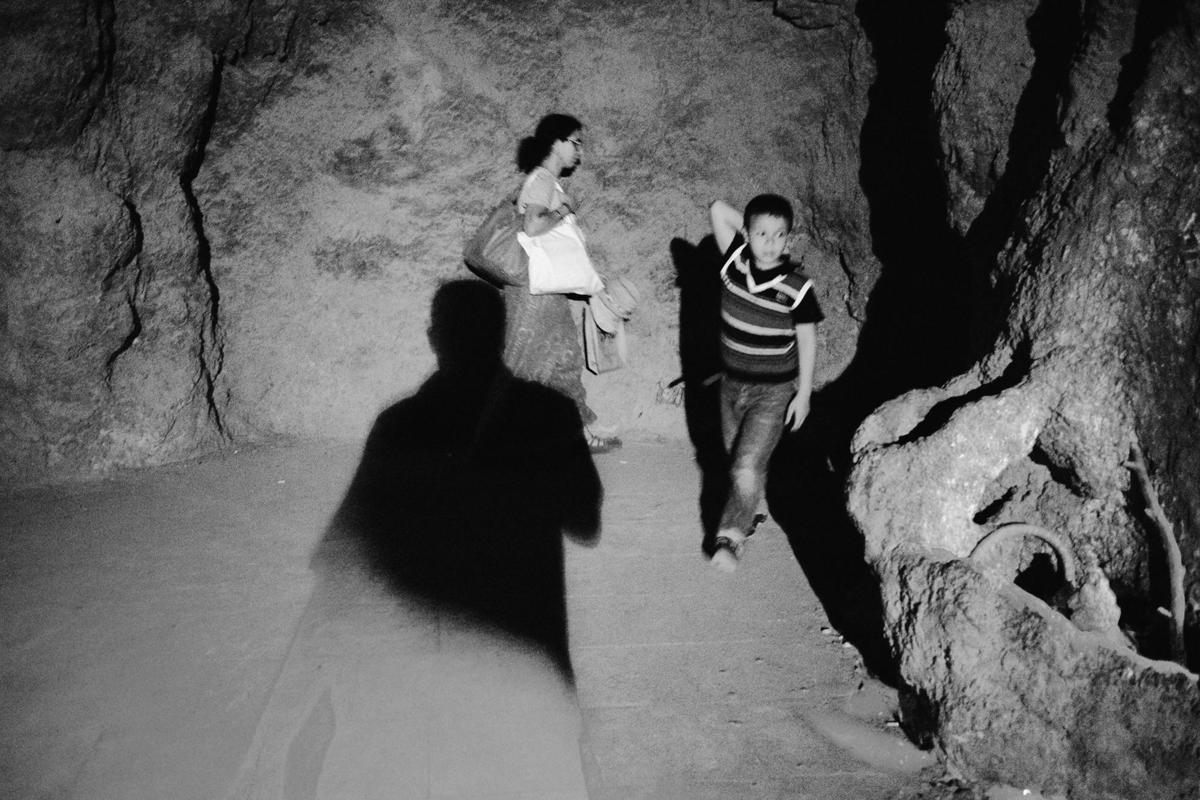
YR: I think it’s only about what it has done to you as a human being.
MI: Okay. So let’s say that you were faster at seeing this than others. And you distanced yourself accordingly. But why do you think that was?
YR: I don’t know. It just became obvious to me. When the revolutionary youth, “the pure ones,” led by Alaa Abd El Fattah, went to join the Salafi Hazemoun demonstration at the Ministry of Defense, and it ended with the locals slaughtering the people on the streets — well, what the fuck were you going there to do? It was bound to end like that.
MI: Was that the boy who died from being hit by stones?
YR: I don’t think so? This was in July 2011. That was it for me, when I realized that it wasn’t really about anything that I thought; it was about demonstrating, even if these demonstrations were completely the opposite of what you were fighting for. There was a whole group of young people who were prepared to blindly follow the leader — a fanatical liar whose presence was an indicator that we were completely sick as a society. Why should we as seculars and liberals support this? Just because they are demonstrating?
MI: You don’t think there was an element of idealism in that? Or just fetishizing demonstrations for their own sake?
YR: I think it was about fetishizing demonstrations. It wasn’t really about anything, which is a big part of why nothing could’ve come out of it. I was making fun of it at the time, but later on it became very clear to me, this idea that there are objective conditions for a revolution to be a revolution as opposed to a series of protests or whatever. In as much as the event was about young people claiming public space and doing things that they had been prevented from doing, then it was wonderful… But it could only go so far and last so long. The general public won’t accept it indefinitely. But this was the moment for me when the revolution ended, when people were going to go support Hazemoun and being killed on the streets. Obviously, I didn’t want to be part of this.
MI: I think I know the moment, and it was a difficult moment for me for different reasons. What struck me that day was that guy dying — in my mind, it was the first time I heard of an incident where people killed someone. I forgot the name of the guy, but until very recently I remembered his face. What I remember was this stone thrown from the roof of a building — so the building itself was the weapon, gravity —
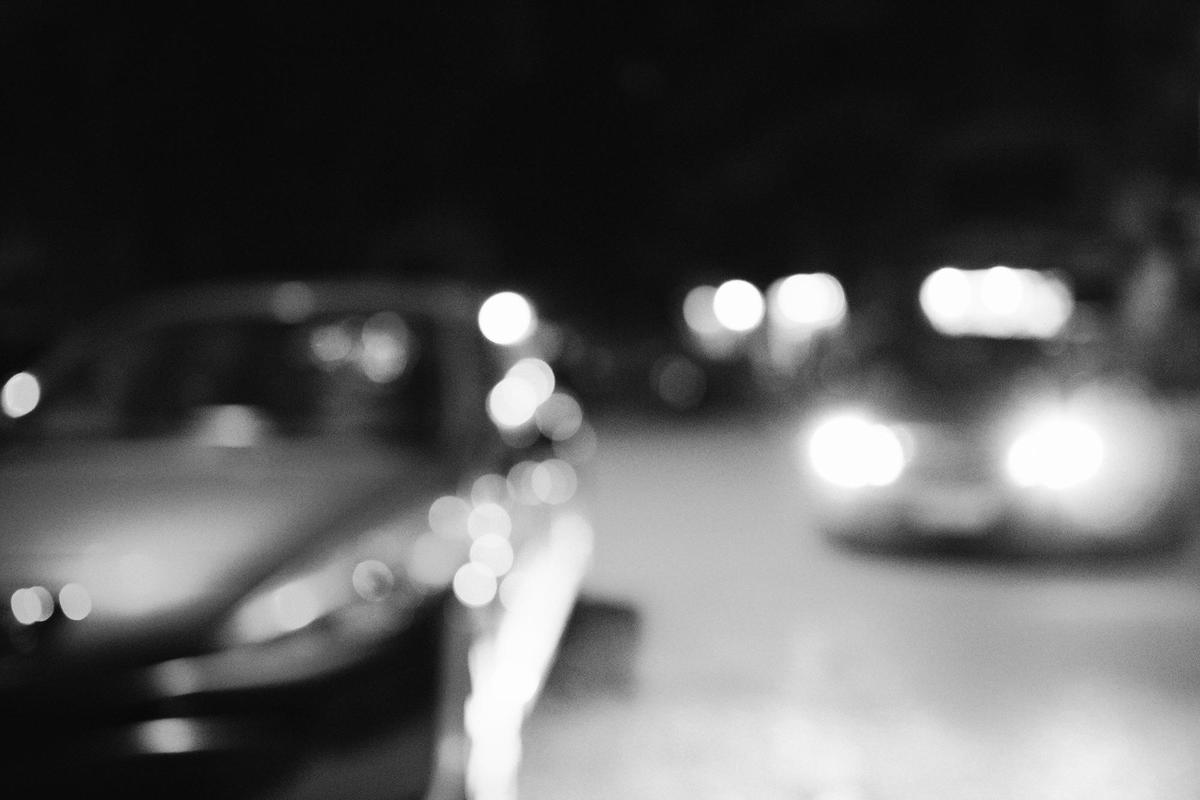
YR: The city was the weapon. But I am still thinking about this question of yours. Why did I see this so early? I think it’s partly that I’m a very impatient person, and I suffer from anxiety. I don’t really wait on things. But it might also be the fact that I was at the point in my life where I needed evidence that this was going somewhere. People were willing to die so that Hazem Abu Ismail can run for president? I just couldn’t deal with that.
MI: Well, this idea of fetishizing demonstrations, the slogans, how people engaged in things… They’re all things that could be interesting to really think about now that —
YR: Now that we’re cured.
MI: I don’t think I’m cured. I don’t think I even want to talk about this anymore. [Laughs]
YR: Really?
MI: Yeah. [Laughs] If you’re impatient, I’m a little bit pragmatic, so now that I see that nothing is going to change in my lifetime, I don’t really care. [Laughs] It does what it does, and it’s the responsibility of others.
YR: There was this idea that was very current at the time of the revolution, that maybe we’ll suffer now but in ten years it’s going to be better — that you can’t see it now, but ten years from now… For me this was a disgusting form of self-delusion. It’s exactly the same logic as not questioning certain things because God tells you not to. The revolution was like an Abrahamic deity, who we all had to bow to and follow.
MI: I think you are very right. My father — and mind you, I have serious ideological problems with him — but I think he is a reasonable man. And he has become more and more pro-regime and anti-revolution, and part of it is that I think he felt oppressed during that period, and it’s all coming out now. He can talk about it. He says that if he wants to say those things, he should be able to talk about them…
YR: Yeah. That was the paradox of the whole thing — it was a liberal-democratic revolution, which, I mean, is a contradiction in terms. I mean, you’re supposed to be able to have multiple opinions in a liberal democracy…
MI: But it’s a revolution! [Laughs]
YR: So how was that going to work?
MI: This was discussed, and nothing came out of these discussions. There were all these discussions about whether this or that action was revolutionary or reformist.
YR: I remember Amr Ezzat talking as if “reform” (eslahi) was a dirty word. And post-2011, “enlightened” (tanwiri) became an insult. It’s unbelievable — so much of the Islamists’ work was being done for them. I couldn’t help but think of the Iranian revolution. There must have been a similar moment in Iran, circa ’78/’79, where people acted the same way, and it ended up the way it ended up.
MI: It’s funny, I was just thinking about that period. I mean, it’s all about what happens after, right? And what they become. A lot of the people who led the revolution in 2011 are the children of ’78/’79. But we are a bit older.
YR: I think that helps.
MI: I think it helps, but for me there has always been this cloud of guilt associated with our in-betweenness.
YR: I’ve never felt such guilt.
MI: I had it, and I had it because of what I thought I was doing with my life, and how I thought I was engaging, because I thought I was doing something good, but it was something good that was made after a clear decision… But you have to engage with the politics. I mean, I am not a political animal, but I am aware of politics, and I made the decision not to be engaged. And, I mean, it’s a very ignorant thing to do.
YR: I don’t know if it’s ignorant. I would say that it was my decision, too, and still is — except for those few months in 2011. But choosing not to be engaged is still a political decision!
MI: Yes, of course. All I am saying is that there was a time when I believed that I could practice my profession without thinking about politics, but of course I no longer believe that. That’s why I stopped working in conservation — I couldn’t just decide to work on a building I was interested in, engage with that building for two or three years, make it nice and pretty and whole again, and just leave. That was the job, and it stopped working for me. Now I do work that involves interesting buildings in the historic city, but it’s a different job. [Laughs] It has a different frame, a different context.
YR: You decided to engage with certain things in a different way.
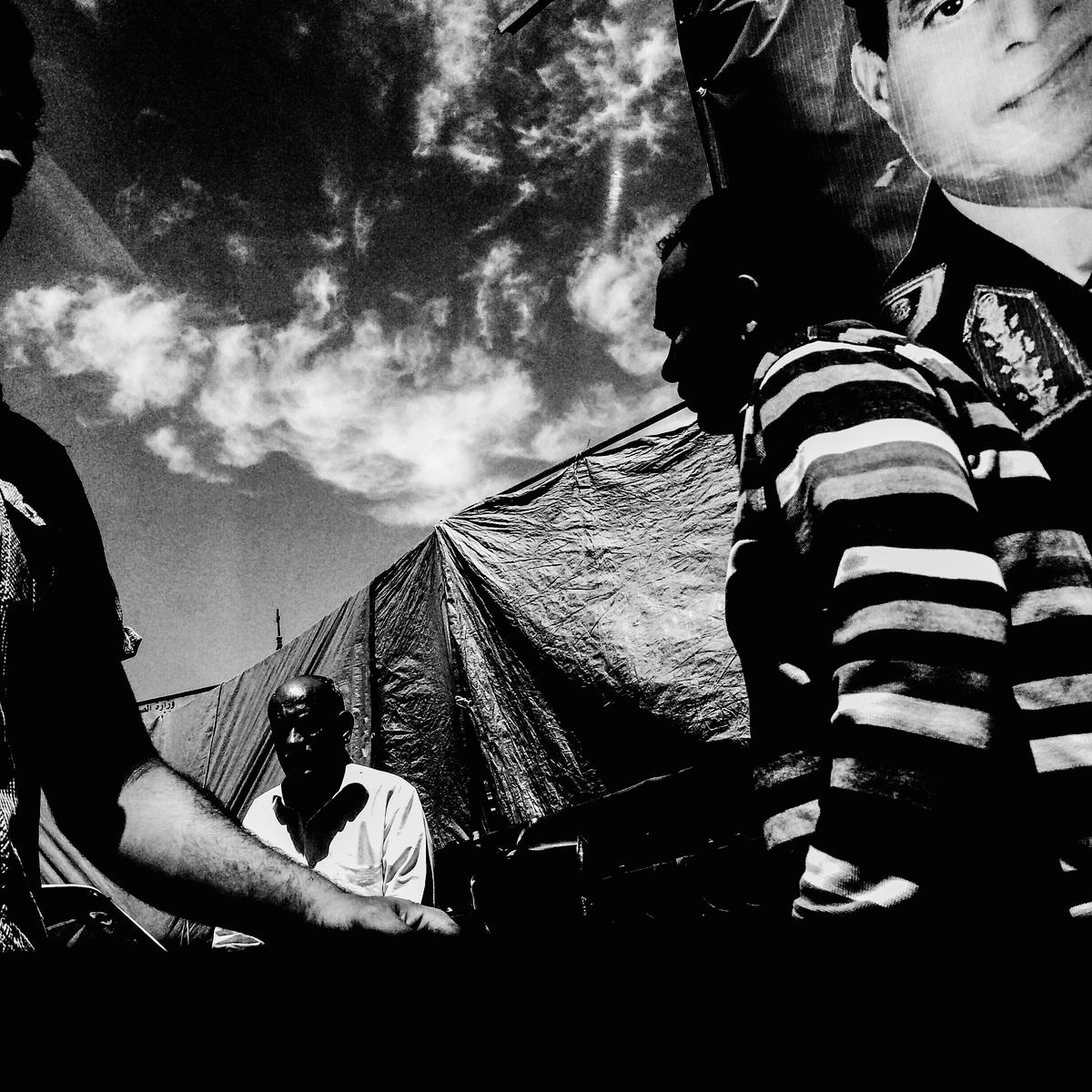
MI: Yes, to think about the politics of heritage, to see it as a vehicle for improving people’s lives and try to get them to see that, so they can claim ownership of their heritage and take care of it. It’s a tall order not necessarily achievable in that linear manner but worth working toward… And as I say that, I wonder how those few months when you made a different political decision, as you say, impacted your work — what effect that period of engagement and disillusionment had on your writing.
YR: Well, the second book, which I started right before the revolution, was inspired by a love affair. And then it also became about the revolution. But that love affair ended up being a way to get into the literary community here. I mean, I was part of that community, and it made me think about how these people function and how different I was, coming from the provinces as opposed to be being born in the city, and different thoughts around that. And they were not happy thoughts. [Laughs]
MI: Where were you born, again?
YR: Dokki.
MI: So you mean metaphorically, in terms of the literary community—
YR: —then when the revolution happened, I started incorporating it into the book, and then the whole book became about the revolution. But perspective-wise, it still included what was happening in my life and why it was failing, which became the lead-in to the revolution and that moment of engagement.
MI: As an architect and as a reader — as someone for whom fiction really shapes my perspectives, sometimes subconsciously — I’d like to know a bit more about how the story of the city gets told… I keep thinking of that film, Synecdoche, New York. Have you seen it?
YR: No.
MI: It’s about a playwright who is trying to stage a play about New York, and how he starts thinking that bits of New York have to be included in the set, and he keeps adding more and more because he feels like those bits have to become part of the set if he’s going to tell the whole story. It’s literally during the film that the set is being built.
So to go back to this question of what is distilled and what stays with you and how the story of the city is told — I feel like your books are stories of communities in the city.
YR: Well, I always start with a single person, an individual consciousness, whether it’s going to be the storyteller or not. The book that I am working on now is different, in that the story is being told by a son who experiences things through his mother’s consciousness — so then the city becomes something a lot smaller and a lot more limited but in no way less valid, you know? More subjective, maybe. But in any case, a city is… I couldn’t possibly deal with the whole city. Especially a city like Cairo. I mean, it becomes a rhythm thing. And also the more difficult part is that no matter how open-minded you think you are, it’s ultimately a question of place and position. And in the end, you are standing in a very small place and there are always other places that you’ll never be able to deal with. Which brings us back to the question of how not to Orientalize, in a way. I think the way to deal with that is not to pretend that you can see from the position of somebody else, but to look for what could be shared between your position and that of others, what you have in common. Which is the city. [Laughs] So I think it’s essential, this idea of telling the story of the city, which is telling the story of someone in the city. And the more specific and unique the person you’re telling the story through, ironically, the more convincing the story of the city is going to be. I mean, that’s the thing with fiction. You must have noticed as a reader — it’s not about communicating or transporting reality or a section of reality; it’s about doing something that suggests or evokes reality in a convincing way.
MI: So, I am going to ask you a question that might make you hate me…
YR: Really?
MI: So you know how books are sometimes described as formulaic? And there’s a pleasure to be found in that — when you read children’s books, for example, there’s a kind of comfort in recognizing the underlying structure. With detective novels too — and I’ve found that I really love detective novels. When I don’t want to think, I enjoy the formulaic. So as a reader, I will select crime novels by city or country, moving from country to country. Anyway, this was something that I noticed I was doing subconsciously, so I started doing it purposefully, because I realized I liked it. And I think it’s related to formula.
YR: Why would that make me hate you?
MI: Well, because formula in fiction has a pretty bad rep. And with everything we’ve been talking about, you know, the uniqueness of the singular voice, I think my question would be: How do you relate to formula, as a writer of fiction?
YR: Actually — I feel that I could have benefited from formulas more, if it had been part of my education. I’m not hostile to formula. Interesting anecdote: I really, really love Mustafa Ismail, the Qur’anic reciter.
MAI: The radio qari’? Really? He’s been dead for decades.
YR: I don’t listen to him as much anymore, but I really think he was a genius. Unbelievable. And I really like that tradition. The thing is that there are seven or ten accepted “readings” of the Qur’an, ways to read it correctly, and you’re supposed to stick to one set of rules when you read. You don’t switch. And I always thought, how can he do what he does? Then I paid attention, and I realized he doesn’t stick to one style. He actually breaks the rules. But he was very well established, and no one objected. And this is a confirmation for me that to get to a certain level of creativity, you have to break the rules. Which doesn’t mean you’re disrespecting tradition. But it does mean that you can’t just apply the formula — you have to go beyond it slightly. You have to have a conversation with formula. In my work, the formula is generally outside of the narrative, so for example, in my second book, The Crocodiles, where the main characters were writers, the formula I was talking to is the prose poem.
MI: But that’s more structure than formula.
YR: At formula’s deepest level, you’re not usually aware of these things.
MI: The reason I ask this question, I guess, is that my field, architecture, is a field of outsiders. Or rather, the field is outside: It’s somewhere between art and science and technology. And we have our formulas too, right? And that got me thinking about whether it is even possible not to work with them. Because they do work, sometimes — certain books work because they’re formulaic.
YR: I think that even books that are not formulaic —
MI: Not just books — I am thinking of writers. Like that Japanese writer…
YR: Murakami?
MI: Yes! He’s formulaic.
YR: Yeah.
MI: He is very unexpected — surprising, but surprising in a very formulaic way. And he has developed a following because he is formulaic. When you read his books, it’s like going back to a familiar place, to a world that you like to spend time in, even while there’re differences between books. And I am wondering — maybe this is the part I thought might anger you — are you formulaic in that way?
YR: My honest answer would be that I try not to be. As I was saying before, I get bored easily, and I am very impatient, so in order for a project to really consume me, it has to be something I haven’t done before. Or at least, I have to believe that it’s something that I haven’t done before. Having said that, when I look back through everything that I have done, there are ways that it’s always the same. I always end up telling the same story. I am trying to tell it in a very different way, but the same elements are there — the structure, the way things move. And you know, you’re right — it’s one thing to describe someone as formulaic, which has negative connotations, or could have. But I feel like even the best writers… A writer writes one book.
MI: They tell one story.
YR: They do variations on a single story. Of course, in the practice of doing writing, I try to do extremely different things as much as I can, but I also realize that underlying it is more or less the same story. So the interesting thing is how reality enters into it. So if I am telling the same story now that I was before the revolution, what’s different is that now the story has the revolution in it. And maybe it’s more convincing now. Maybe the story was waiting for the revolution to happen.
MI: So is it a question of content or craft?
YR: Both. I don’t really think you can separate them — when you’re doing things with words, the content is there for the craft.
MI: I think craft fascinates me just because of the ritual element. And because it tends to have a bad rep — most creative people prefer “art” to “craft.” When we opened Megawra, my references were cultural spaces or art in the city. So I would go to these meetings with Townhouse or CIC (Contemporary Image Collective) and see how we could fit into that schema, but after a while I realized that we were doing other things. But if I were to start over today, knowing what I know now, rather than trying to fit architecture into an art context, I would try to rethink both from the perspective of craft. Which is interesting, then, how little it becomes about content.
YR: I think that content is important to show that the substance is there…
MI: In our practice at Megawra, we often make use of art in very blasphemous ways. I will go through whole books and movies, some of them quite wonderful, just mining them for references to the City of the Dead.
YR: I mean, they’re artifacts — they’re there to be used.
MI: Yes, exactly. So in a hundred years, people will look at your books as artifacts, as cultural products of their time, as supposed to the individual voice of Youssef Rakha.
YR: I am totally okay with that.